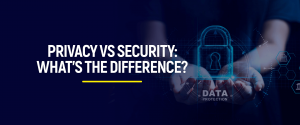

Get 93% OFF on Lifetime
Exclusive Deal
Don’t miss out this deal, it comes with Password Manager FREE of cost.
Get 93% off on FastestVPN and avail PassHulk Password Manager FREE
Get This Deal Now!By Nick Anderson 1 Comment 4 minutes
Privacy and security are two fundamental concepts that a VPN helps to uphold. The two terms are ingrained in the core mission of FastestVPN. Addressing what the two require from you – the user – can help protect your identity and data on the internet.

Although privacy and security are used interchangeably, they are different concepts, but they work together to achieve a common goal. That goal is to protect your data on the internet. Privacy and security are intertwined; you cannot talk about privacy without talking about security. In today’s world, where data is the most valuable thing in the world, it’s of utmost importance to learn how strong security acts as a defense against unwanted threats.
Similarly, learning about privacy can prepare you in the ever-growing landscape of digital services.
Privacy is a fundamental right. It means that information about you, especially that which is personal, should be accessible only to those who you allow. In the online world, it means that without your express permission, services cannot extract and store that information.
The subject has come up a lot over the past couple of years as users are becoming more aware of how services collect data without consent.
Websites and services have a detailed Privacy Policy, which outlines how it handles and stores your information, not to mention the type of information they collect.
Security goes hand-in-hand with privacy. The two are linked together. The principle of privacy that your personal data belongs to you and to you only can only be achieved by putting certain protocols in place. It would be a perfect world where the right of personal privacy was not something that you had to ask but was understood in both a social exchange and service agreement.
Where privacy is the expectation that no one will enter your home without your permission, the doors, and the safety lock on it, serve as security measures in the event someone intrudes; because it’s not a perfect world that we live in.
Just like that, hackers and third-parties may undermine your right to privacy and try to steal your data. Security acts as a barricade against such threats. New threats are emerging, which is why security is a constantly evolving process.
When it comes to data, you are in control of what you share on the internet. There are a few things that you can do to browse the web safely and protect yourself from attempts at data theft.
The reason why VPNs have become popular is because of their ability not only to let users access the internet with complete freedom but also to help them stay anonymous. Encryption is one of the pillars of a VPN that significantly increases protection levels. In the case of FastestVPN, your data gets protected with military-grade AES 256-bit encryption.
© Copyright 2024 Fastest VPN - All Rights Reserved.


Don’t miss out this deal, it comes with Password Manager FREE of cost.
This website uses cookies so that we can provide you with the best user experience possible. Cookie information is stored in your browser and performs functions such as recognising you when you return to our website and helping our team to understand which sections of the website you find most interesting and useful.
Strictly Necessary Cookie should be enabled at all times so that we can save your preferences for cookie settings.
If you disable this cookie, we will not be able to save your preferences. This means that every time you visit this website you will need to enable or disable cookies again.



Nice Post